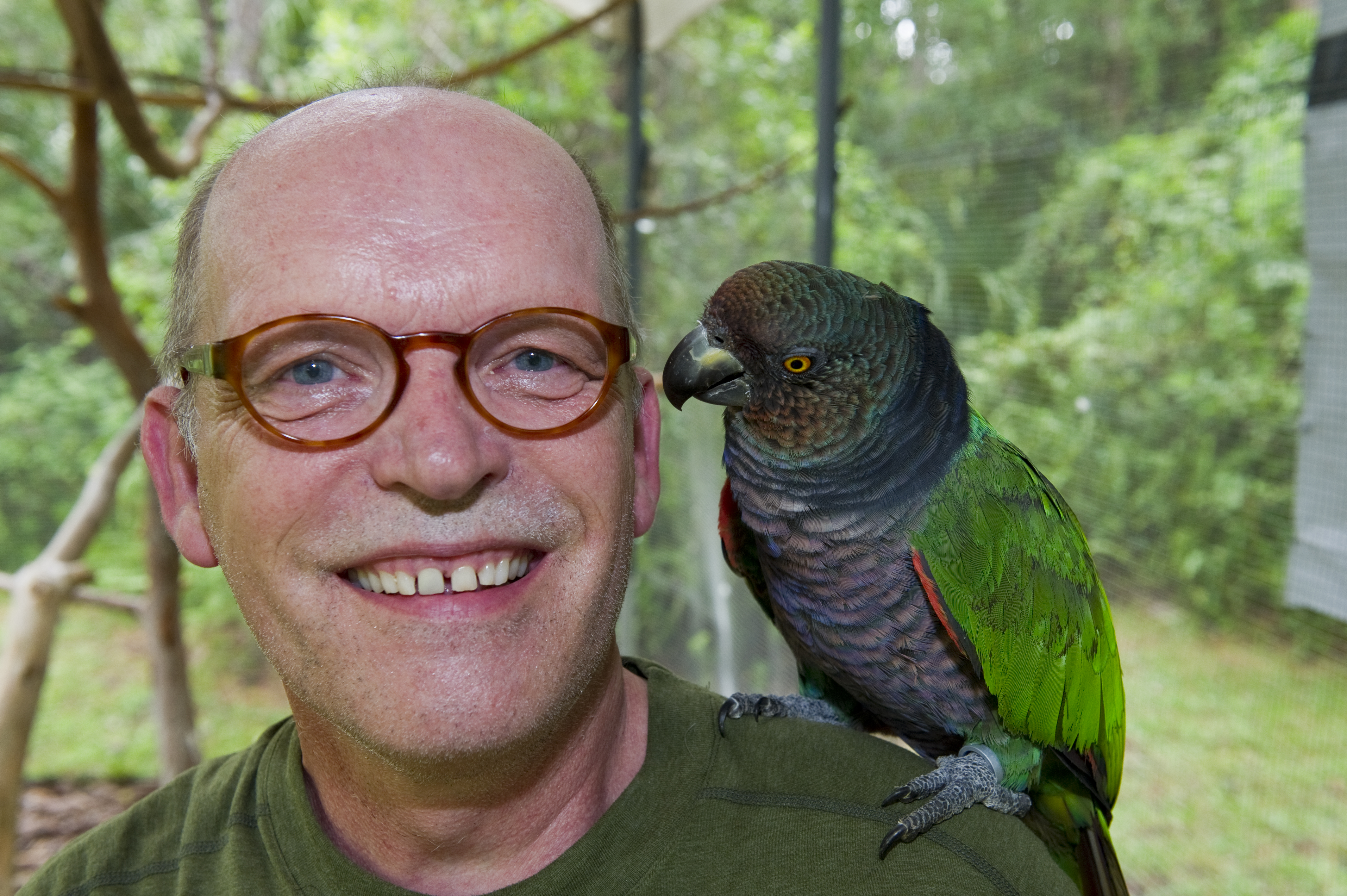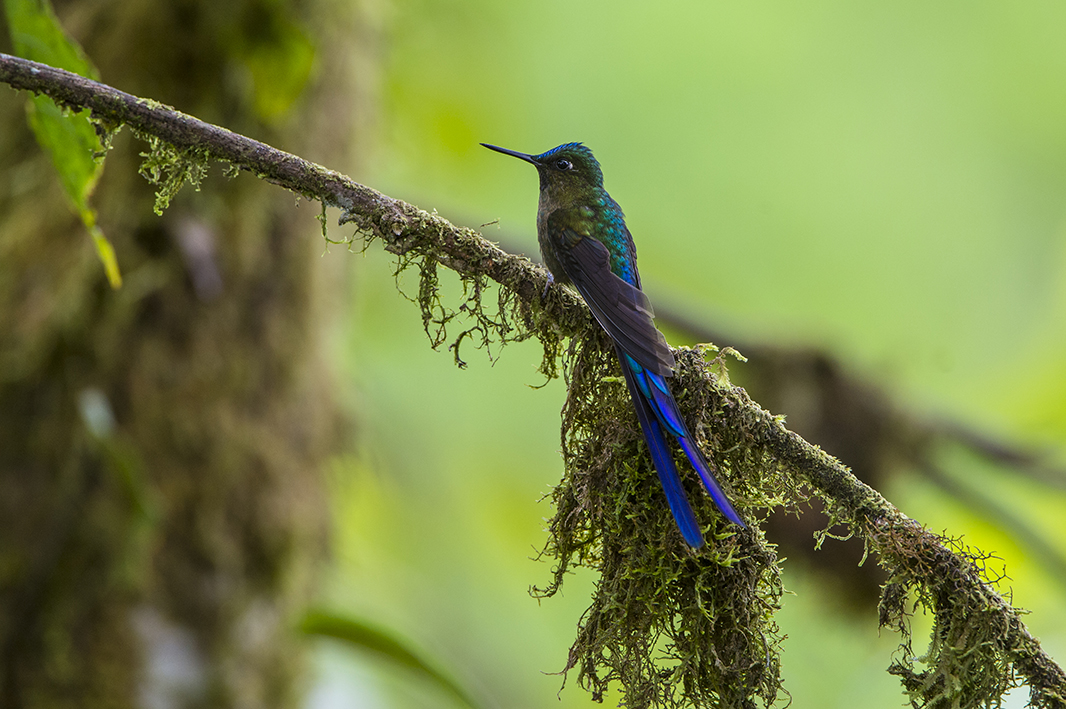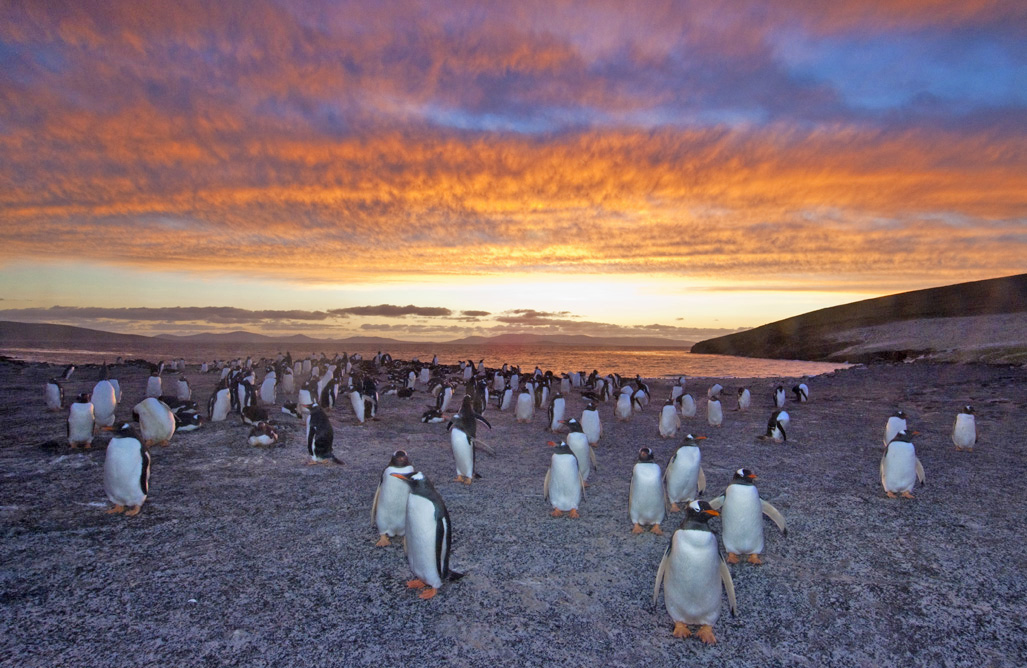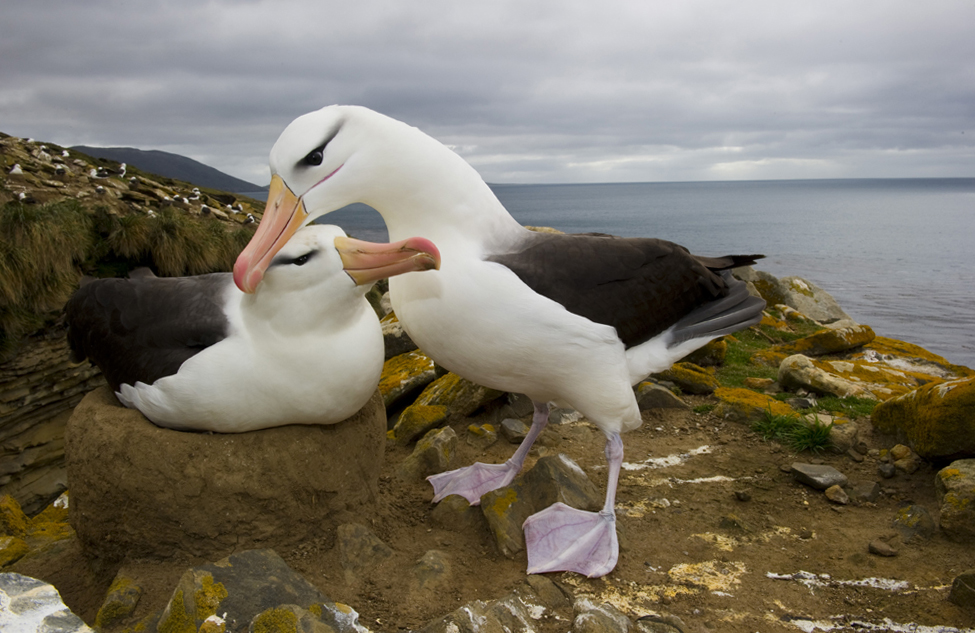Appreciations
Charles Bergman: A Most Adventurous Professor
Dr. Charles Bergman begins his phased retirement in Summer 2015 after thirty-eight unusually interesting and accomplished years at PLU. His teaching, leadership, and writing have garnered the highest recognition from within and without the university. The true measure of his achievements, though, must be taken from more than his specific awards. Peering more closely, one sees the truly remarkable character of his life: wildly adventurous, yet so determined, persistent, and practical that real things come from his adventures.
His character is perhaps most obvious in his writing. Three books – Wild Echoes: Encounters with the Most Endangered Animals… (1996), Orion’s Legacy: …Man as Hunter (1996), and Red Delta: Fighting for Life at the End of the Colorado River (2002) – required both consummate research and hard, gutsy field work. His dozens of articles in prestigious nature periodicals – Smithsonian, Audubon, Natural History, National Geographic, to name a few – appeared there not only due to the excellence of his writing, but also because of his willingness to go where and do what few others would. It took more than just adventurousness; it also took innovation, creativity, and commitment. When the need for a professional photographer for his nature writing became apparent, he became a professional level photographer himself. His fluency in Spanish tells a similar story; some of his projects could not get off the ground without it, so he invested everything it took to gain it.
Dr. Bergman’s January-Term (J-term) courses reveal similar things. Over the years, he traveled with students to Antarctica, Ecuador and the Galapagos, Tanzania, Cuba, Australia, and Costa Rica. How has he managed to put all of these study-away courses together? Students flock to them, hungry for the unique bonds that form in collective adventure and face-to-face contact with other species. Life changing, many say, and they mean it. Those of us who know him can readily understand how he and his courses have this effect. Dr. Bergman is infectious. He doesn’t hold back.
Such unique dimensions of his work should not distract us from his many other, no less valuable contributions. Year in and year out he has taught vital courses for the English Department – Environmental Literature, English Renaissance Literature, American Environmental Writing, etc. He was the founding director of the Writing Center and directed the First-Year Experience Program of the core curriculum. In 2004-2006, at a particularly delicate period of core curriculum revision, he served as Chair of the University Faculty.
We await Dr. Bergman’s next book (provisional title: Parrot, Speak) to marvel once more at the fertile imagination, empathy, and finesse he brings to discerning what’s really going on in our relationships to other species, and theirs to us. And all of us are thankful that he will still teach two more study-away courses in J-term.
— Paul Menzel, Professor Emeritus of Philosophy
All photos courtesy of Charles Bergman; see more of Dr. Bergman’s photos at www.charlesbergman.com
Thomas Campbell: A Life of Fiery, Thoughtful Beauty
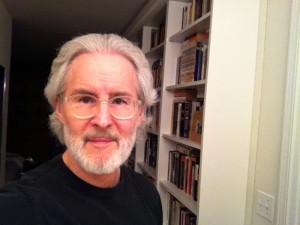 Thomas Campbell is retiring this spring, after 31 years of inspiring, heartfelt, invigorating, generous, and humane work at PLU. Deeply committed to people, to the arts, and to social justice, Tom’s work centers on the relationships among beauty, connection, and care. “[B]eauty is good for us—by which I mean it makes us better people,” he writes. “Experiences of beauty seem to me the rare moments when we actually feel something like grace, moments when we can seem connected to other things and times and states of being.” Those moments of grace have sounded through all parts of Tom’s life—in his teaching; in his reading and writing; in his ongoing correspondence with his former students, family, and friends; at his piano; at the opera and in the theater; and in his home with Carey, his beloved partner of 40 years. Tom Campbell has made a life of fiery, thoughtful beauty.
Thomas Campbell is retiring this spring, after 31 years of inspiring, heartfelt, invigorating, generous, and humane work at PLU. Deeply committed to people, to the arts, and to social justice, Tom’s work centers on the relationships among beauty, connection, and care. “[B]eauty is good for us—by which I mean it makes us better people,” he writes. “Experiences of beauty seem to me the rare moments when we actually feel something like grace, moments when we can seem connected to other things and times and states of being.” Those moments of grace have sounded through all parts of Tom’s life—in his teaching; in his reading and writing; in his ongoing correspondence with his former students, family, and friends; at his piano; at the opera and in the theater; and in his home with Carey, his beloved partner of 40 years. Tom Campbell has made a life of fiery, thoughtful beauty.
Tom’s attention to beauty plays out in the art of literature, in the art of teaching, and in the art of conversation. Known for his passion, rigor, energy, and honesty, Tom has incredible breadth as a reader, teacher, and scholar. Equally equipped to teach Samuel Pepys, William Blake, Virginia Woolf, Susan Sontag, Julian Barnes, and Mark Doty, Tom could—and did—teach British literature from the eighteenth century forward, with plenty of Americans thrown in for good measure. He also taught unfailingly popular courses on the Personal Essay and in the First-Year Experience Program. Tom taught destination courses—courses students would intentionally seek—because he was a destination professor. As one student advised current and future students, “Best effing professor I had at PLU. The end. You want someone who cares about your education? Take his classes.” Tom was honored with the Faculty Excellence Award in teaching, but the larger testaments to his profound influence are seen in the numbers of students who have sought him out as undergraduates and those who have continued to correspond with him long after—decades after—they’ve graduated. And the evidence of Tom’s influence on his colleagues is seen outside his office door, with people waiting for their turn to talk to him and get his advice on teaching, literature, relationships, and even bureaucracy. Tom served successfully as chair of the English Department, but with his talent for reading texts and people equally well; his animated, pointed, and on-the-money ways of naming what he sees; and his rare ability to get angry and stay generous at the same time—Tom has been the head and the heart of the English Department for decades.
Tom’s commitment to making honest, beautiful lives has extended far outside the classroom. Demonstrating considerable courage and integrity, Tom challenged PLU to become an institution that fully and fairly supported LGBTQ people. As one of the first out gay faculty members on campus, Tom co-developed and co-led Harmony beginning in 1993, shattering the harmful myth that PLU did not include LGBTQ faculty and staff members. Tom mentored many LBGTQ students, supporting them fully as they worked to reduce anti-gay prejudice on campus and in the larger society. His contributions to the ongoing process of making PLU “queer friendly” continue to resonate strongly and will never be forgotten.
As a scholar, Tom’s work reflects his multitudinous interests and commitments. A regular contributor to the Magill Book Review for twenty-five years, Tom, always with his inimitable point of view and lively prose, has reviewed gay and lesbian literature, AIDS literature, personal writing, literary history, and fiction and nonfiction focusing on fathers and sons, love, and friendship. He has compiled an anthology of AIDS memoirs that lays out a vital literacy and cultural history. And he is currently at work on Son: Life and Letters, a collection of and about his fifty-one years of correspondence with his father. Tom’s projects are always organic to who he is and what he values in the world.
On the last day of class last semester, a student in Tom’s British Traditions in Literature waited after class to thank Tom for his teaching. Speaking for thousands of students, staff, and faculty who were lucky to work with Tom, he said, “Every day was a pleasure.”
– Rona Kaufman, English Department
Barbara Temple-Thurston: Exploring New Possibilities for Living in the World
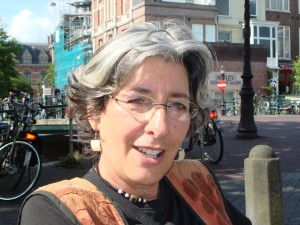 Barbara Temple-Thurston’s 25 years at PLU have modeled the teaching and mentorship envisioned in the university’s mission statement. Not only has she educated students for lives of thoughtful inquiry, service, leadership, and care, she has also expanded the university’s horizons—literally—by establishing a Gateway program in the Caribbean and leading and supporting multiple programs in Africa. Students at PLU have benefited enormously from her many courses in Postcolonial literature and from her active involvement in the Global Studies and Environmental Studies programs. And the PLU community as a whole has benefited from her service as Chair of the English Department, Dean of Humanities, and participation on major university committees.
Barbara Temple-Thurston’s 25 years at PLU have modeled the teaching and mentorship envisioned in the university’s mission statement. Not only has she educated students for lives of thoughtful inquiry, service, leadership, and care, she has also expanded the university’s horizons—literally—by establishing a Gateway program in the Caribbean and leading and supporting multiple programs in Africa. Students at PLU have benefited enormously from her many courses in Postcolonial literature and from her active involvement in the Global Studies and Environmental Studies programs. And the PLU community as a whole has benefited from her service as Chair of the English Department, Dean of Humanities, and participation on major university committees.
Barbara came to the United States in 1976 from South Africa, which was then suffering under the prolonged racial oppression of the apartheid system. She earned her M.A. and Ph.D. in Literature from Southern Illinois University and taught and held administrative roles at colleges in South Dakota, Virginia, and North Carolina before coming to PLU in 1990. Barbara’s experiences of fighting racial and ethnic oppression shaped her research and teaching interests, shifting her focus from Modern British literature to African and other Postcolonial literatures. This work coalesced in a 1999 book about her Nobel Prize-winning compatriot, Nadine Gordimer Revisited.
Opening PLU students’ hearts and minds to other ways of seeing the world has been at the core of Barbara’s teaching, and it was one of the motivating factors that led to the establishment of a study-away program in Trinidad and Tobago. The islands are home to a remarkable diversity of ethnicities and religions, which all come together in a harmonious, warmly accepting blend of cultures. After an experimental J-Term course featuring the preparations for Carnival, the program was expanded to a full-semester experience. And thanks to Barbara’s efforts, the Caribbean came to PLU, too. World-renowned Trinidadian author Earl Lovelace was writer in residence at PLU for several years, and a partnership between the university and governmental and educational institutions in Trinidad and Tobago instituted a scholarship program to bring students from the islands to PLU. Our last such scholarship student will graduate this Spring.
Barbara also worked with various organizations to open up opportunities for PLU students to study in Africa, further expanding PLU’s global outreach. Thanks in large part to Barbara’s participation, PLU remained one of the members of the Lutheran College Consortium for Tanzania, which for many years ran a semester-long program at the University of Dar es Salaam. She has also taught in and supported PLU’s program in Windhoek, Namibia. And with the end of apartheid in 1994, Barbara was also able to initiate a regular J-Term course in South Africa.
Students who have accompanied Barbara on these study-away courses have testified to how the experiences have opened their eyes to issues of social justice and shown them new possibilities for living in the world. And they have also borne witness to how such experiences can change lives.
While Barbara is perhaps best known for the many ways in which she directs her students’ eyes towards distant cultures, she has been equally engaged in urging them to attend to what is right before them here in the Puget Sound region. A vocal advocate for sustainability at PLU, Barbara has also been very active in the community garden movement in Tacoma. And those who know her know that her care for the earth and its creatures manifests itself in a great love for animals, especially Portuguese Water Dogs. Many will remember her first Portie, Hershey, a constant companion and honorary member of the Humanities Chairs Council. Hershey’s successors will ensure that there is no danger of Barbara becoming idle in retirement: agility and water training will keep both the human and nonhuman animals active and well.
– Solveig Robinson, English Department



